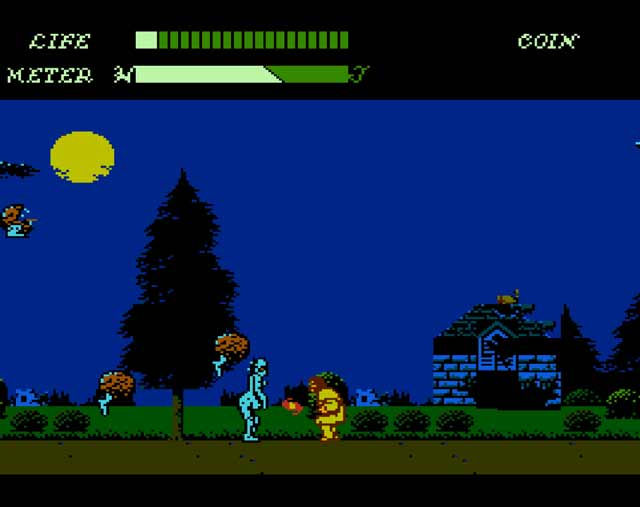Spectacular Failure and the Angry Video Game Review
- ardavid
- Dec 2, 2018
- 4 min read
The readings this past week on failure in gaming left me thinking a lot about playing to fail and the celebration of failure. Anable points out that in 2008, during the financial crisis and in the ensuing years, internet meme culture, through concepts like “epic fail,” celebrated individual failure “as a way of pointing to the ubiquity of failure in daily life” (109). In the Ruberg reading, she briefly discusses out the proliferation of fail videos on youtube in which players record their own in-game fails and post them proudly, in order to demonstrate the practice of playing queerly.
These discussions reminded me a lot of another important ‘wave’ in gaming culture, which also peaked in the years following the 2008 crisis, which was the proliferation of angry video game reviewers on platforms like Youtube, who would record themselves reviewing, breaking down, and angrily reacting to the most frustrating, difficult, and over-the-top “bad” games they could find. This was a case, similar to the fail compilations that Ruberg mentions, as well as viral videos like “Super Mario Bros. Frustration” in which there is a unique kind of pleasure at play, a voyeuristic enjoyment of the reviewer’s pain and constant failure when playing the game. I believe that these angry reviews provide a lot of examples of gameplay experiences that purposely involve playing to lose, but add another layer, in which there is explanation as to why this amount of loss is over-the-top, too much, not ‘fair.’ This involves much incorporation of failure that viewers are familiar with from playing video games in their own childhoods, such as unexpected “gotcha” deaths, nonintuitive puzzles, and cryptic dead-ends. One famous rant from the Angry Video Game Nerd is “That’s it? One die? No continues?” an all too familiar instance of video game failure (the one-death game over) that audiences arguably project their own frustration with the unforgiving lack of second chances in life onto.
Obviously one could argue that the ‘bad’ games that these reviewers ‘put themselves through’ playing (E.T. for the Atari 2600, Superman 64, etc.) are not exactly like the games we played for class this week or the ones discussed in the Ruberg reading because they lack their purposeful analytic/thematic dimensions surrounding failure and are difficult and frustrating for other reasons (poor programming, etc.). However, they still inject failure in interesting and unique ways worth discussing. Moreover, the nostalgic voyeurism involved with angry retro game reviews involves its own kind of celebration of failure that not only turns it into a spectacle, but de-individualizes it by illustrating the relatable experience of blaming the game, the system, and rules that set one up for failure just like they do in the ‘real’ world. There is also a transforming of that shared frustration with the system into an embracing of failure, but in a way closer to Juul’s conception of failure, because it is a process of constant failure for the purpose of eventually beating the game, not letting it win.
However, there is one Angry Video Game Nerd review that sticks in my mind as demonstrating the potential for queer failure rather than failure as a means to winning, and that is Dr. Jekyll and Mr. Hyde (NES). In what he argues is one of the most frustrating games ever made, the player assumes the normative position of Dr. Jekyll, walking from left to right through a dull landscape to make it to his wedding. In order to succeed, the player must make it to the wedding without getting hit to many times by townspeople that inexplicably run into and drop bombs near him, birds that defecate on him, and dogs and cats that attack him. The player is constantly dealing with failure, walking extremely slowly without the ability to speed up, and with a weapon (a cane) that is completely useless and doesn’t hurt any of the game enemies. The right way to play the game, the way that ends in getting married, involves constantly failing. However, the way to make the game more “enjoyable” is to get hit enough times and turn into Mr. Hyde. When the player gets hit too many times, they “fail” by turning into Mr. Hyde, day turns into night, and the player now walks from right to left, shooting projectiles at mushroom-shaped enemies until they gain enough energy to turn back into Dr. Jekyll. If they reach the point where they died as Dr. Jekyll before gaining enough energy back, they die as Hyde and the game is over. I think this is arguably an instance of the “queer dialectical tangle between system and player, failure and success, pain and pleasure” (209) that Ruberg talks about when discussing Burnout Revenge. To fail the way the game wants you to is to stay as Dr. Jekyll and go along the path of least resistance; the player is following the tried and true path of keeping the peace and participating in the heternormative institution of marriage in the end but is also in a position of powerlessness, letting the world around them determine their movement. The arguably more pleasurable way of playing the game is to swing your cane at people and fail, let them beat the hell out of you, and play as Hyde, but this would still be failing the way the game expects you to, but in a spectacular way where you at least go down swinging and refuse its narrative of safe, boring success and the dominant social logic associated with it.




Comments